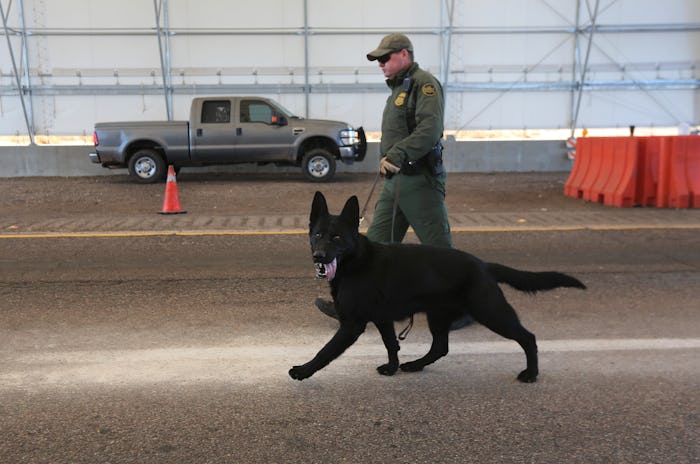News

Is It Legal For ICE Officials To Go Into Schools?
For some immigrant families in the United States, the raids currently taking place across the country are a source of panic — and in an attempt to evade round-ups, some parents have reportedly stopped sending their children to school, afraid of being targeted by U.S. Immigration and Customs Enforcement officials there. But is it legal for ICE officials to enter schools? It's a situation that the agency reportedly tries to avoid, but there have been reports in the past of ICE officials arresting teens on their way to school.
U.S. Immigration and Customs Enforcement classifies schools as "sensitive locations" on their website, and their policies state that "enforcement actions at sensitive locations should generally be avoided, and require either prior approval from an appropriate supervisory official or exigent circumstances necessitating immediate action." Schools, along with hospitals, places of worship, civil ceremonies, and demonstrations are all considered "sensitive locations" as per ICE policies, and thus shouldn't be subject to surveillance, arrests, interviews, or searches for illegal immigrants. ICE didn't immediately respond to Romper's request for comment regarding whether officials have visited schools (even just outside of schools) recently.
The website goes on to state that the policy doesn't bar all ICE activity at schools and other sensitive locations, however. Officials can still engage in actions such as "obtaining records, documents, and similar materials from officials or employees, providing notice to officials or employees, serving subpoenas, engaging in Student and Exchange Visitor Program (SEVP) compliance and certification visits, guarding or securing detainees, or participating in official functions or community meetings."
U.S. Immigration and Customs Enforcement also makes it clear that while the agency will try and avoid action at sensitive locations, it can still happen, with the website reading:
Enforcement actions may occur at sensitive locations in limited circumstances, but will generally be avoided.
So what does it mean if ICE officials can request documents from school officials and, you know, just occasionally carry out their work there? After all, undocumented students are allowed — by federal law — to go to public school, and the ICE's sensitive location policy was designed to let people continue receiving an education, worshipping, and getting health services without living in fear of persecution.
On top of that, according to The Atlantic, it's actually illegal for schools to share student information (citizenship status included), and they're barred from requiring proof of residency. However, at least 55 New Orleans schools were found to be illegally requesting social security numbers in 2014, and some school districts have distributed instructions to schools on how to respond to ICE requests in the past. Immigration activists have also documented cases where students have been handcuffed at bus stops and parents have been arrested during morning drop-offs at school. In 2011, a handful of ICE officials reportedly surrounded a school while parents were inside, according to The Atlantic.
With instances like that making headlines, it's perhaps not surprising that some school districts have taken extra steps to protect their students, despite U.S. Immigration and Customs Enforcement's policies classifying schools as sensitive locations. Public school boards in Seattle, Los Angeles, Portland, Minneapolis, and Pittsburgh have all declared that they will not allow ICE officers to access student records or to enter campus property, and many boards have reached out to parents with information on protecting their rights. Denver Public Schools recently advised parents to update their emergency contact information in case parents were arrested while children were at school.
The consensus seems to be that it flies in the face of ICE policies to target schools — but past incidents have understandably left parents and students concerned, and current reports of ICE officers near schools have been worrying enough to keep parents from taking their children to school lately.